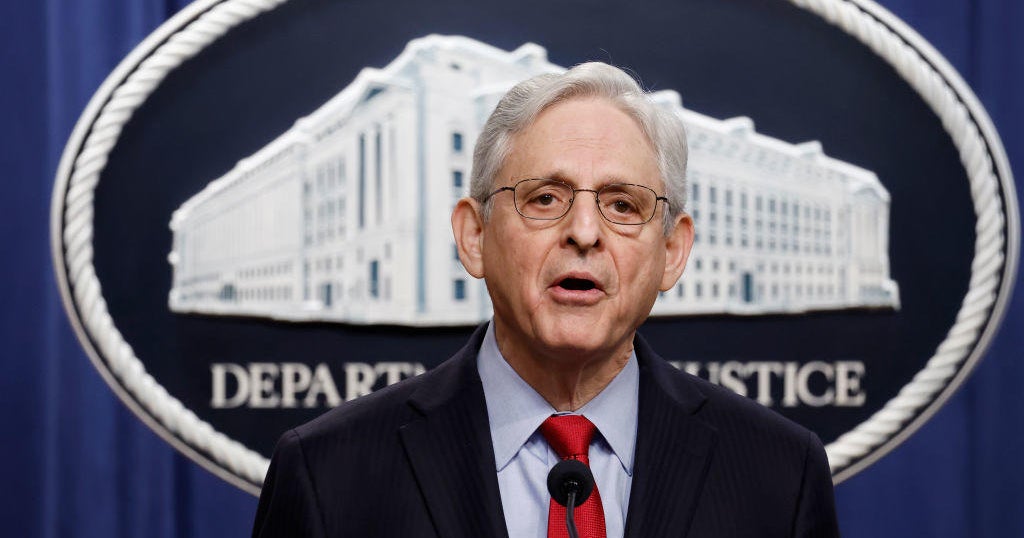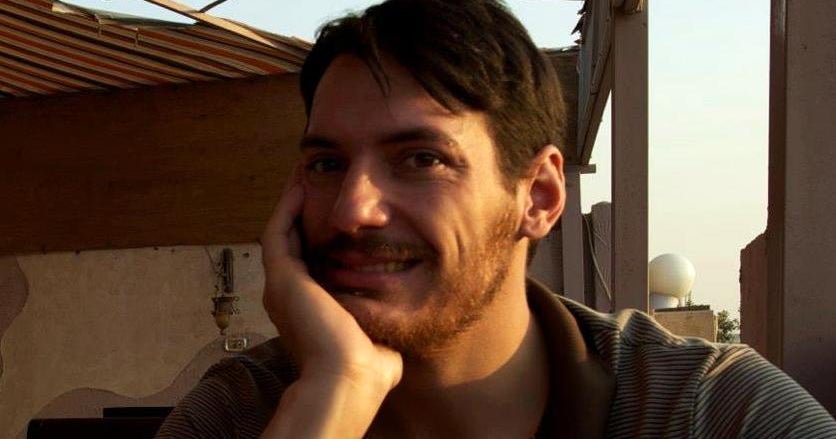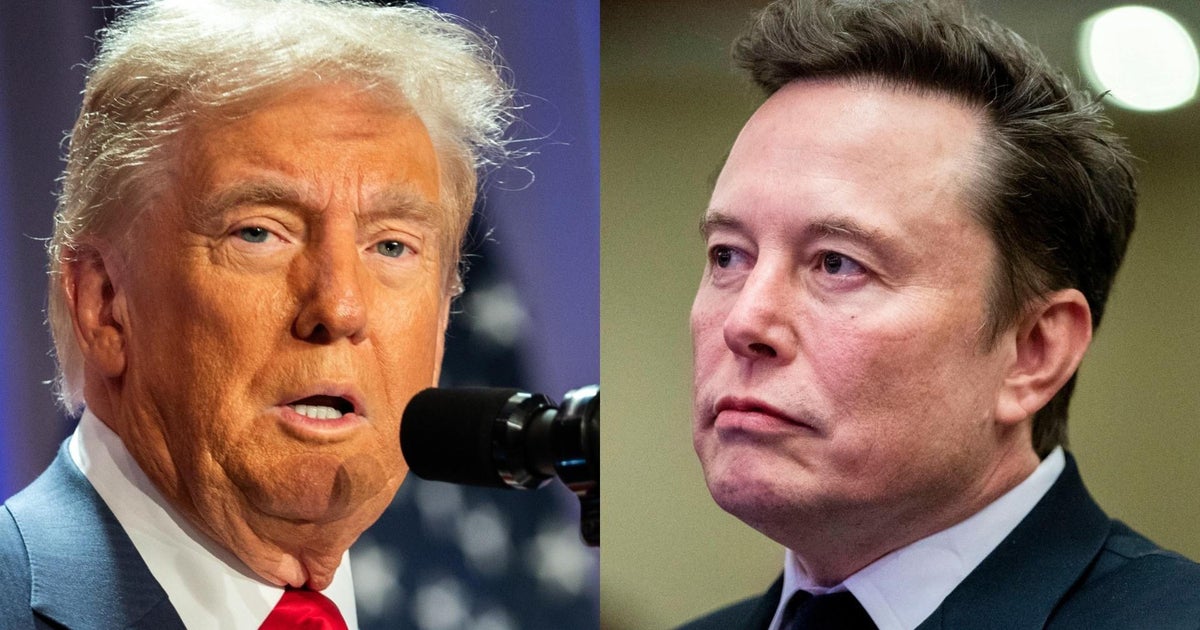CBS News
Biden asserts executive privilege over recording of interview with special counsel demanded by House Republicans

Washington — President Biden asserted executive privilege over audio recordings from an investigation into his handling of classified documents, a top Justice Department official revealed in a letter to House committee leaders obtained by CBS News.
The assertion came at the recommendation of the Justice Department, as the House Judiciary and Oversight Committees were slated to move forward with markups of a contempt of Congress resolution against Attorney General Merrick Garland on Thursday for defying their request for audio recordings from an October 2023 interview with special counsel Robert Hur that came as part of the classified documents case against Mr. Biden.
“While our cooperation with Congress has been extraordinary, we also have a responsibility to safeguard the confidentiality of law enforcement files where disclosure would jeopardize future investigations,” Assistant Attorney General Carlos Uriarte wrote Thursday, “The Attorney General must draw a line that safeguards the Department from improper political influence and protects our principles, our law enforcement work, and the people who carry out that work independently.”
The Justice Department contends that it “made substantial efforts” to respond to the congressional committees’ requests for information and materials following Hur’s investigation into the president’s past handling of classified records, adding they had already handed over the transcripts of the two interviews of which the audio recordings are now at issue.
“The Committees have still not identified a remaining need for these audio files,” Uriarte argued.
CBS News and other outlets have sued for access to the recordings.
The response and upcoming vote could launch the two branches into an election-year legal fight over the tapes, one in which the White House and Justice Department would be forced to justify handing over the transcripts to Congress and drawing a line on the audio recordings of the president.
“We have gone to extraordinary lengths to ensure that the committees get responses to their legitimate requests,” Garland said in brief remarks to reporters Thursday morning. “But this is not one.”
The legal basis for the president’s assertion of executive privilege, according to another letter obtained by CBS News from the attorney general to Mr. Biden, came from the Justice Department’s Office of Legal Counsel and Garland himself made the recommendation to the president.
“The Committees’ needs are plainly insufficient to outweigh the deleterious effects that production of the recordings would have on the integrity and effectiveness of similar law enforcement investigations in the future,” Garland wrote in a letter to the president dated May 15. “I therefore respectfully request that you assert executive privilege over the subpoenaed recordings. I also request that you make a protective assertion of executive privilege with respect to any other materials responsive to the subpoenas that have not already been produced.”
The attorney general wrote that he feared turning over the tapes might risk chilling the cooperation of witnesses, including White House officials, in any future investigations. He said that risk outweighs the committee’s request.
The White House Counsel’s Office also responded to the upcoming contempt votes, writing to House Judiciary Chairman Jim Jordan and House Oversight Committee Chairman James Comer Thursday morning, alleging they would likely “chop up” and “distort” the recordings “for partisan political purposes” should they obtain them.
“Demanding such sensitive and constitutionally-protected law enforcement materials from the Executive Branch because you want to manipulate them for potential political gain is inappropriate,” Edward Siskel wrote Thursday.
The move to assert executive privilege, which grants the executive branch the ability to withhold certain communications from the courts or Congress under the separation of powers doctrine, is expected to shield Garland from criminal proceedings. Garland noted in a letter that the Justice Department has a history of recognizing that executive privilege protects materials related to “closed criminal investigation where disclosure is likely to damage future law enforcement efforts.”
The committees subpoenaed the audio recording and other records in part to determine whether “sufficient grounds exist to draft articles of impeachment against President Biden,” according to reports from the committees. They argued that the subpoenas issued to the Justice Department are part of the House’s impeachment inquiry.
“The Department has invoked no constitutional or legal privilege to support withholding this material,” the reports said. “Its failure to fully comply with the Committees’ subpoenas has hindered the House’s ability to adequately conduct oversight over Special Counsel Hur regarding his investigative findings and the President’s retention and disclosure of classified materials and impeded the Committees’ impeachment inquiry.”
CBS News
Biden’s top hostage envoy Roger Carstens in Syria to ask for help in finding Austin Tice

Roger Carstens, the Biden administration’s top official for freeing Americans held overseas, on Friday arrived in Damascus, Syria, for a high-risk mission: making the first known face-to-face contact with the caretaker government and asking for help finding missing American journalist Austin Tice.
Tice was kidnapped in Syria 12 years ago during the civil war and brutal reign of now-deposed Syrian dictator Bashar al-Assad. For years, U.S. officials have said they do not know with certainty whether Tice is still alive, where he is being held or by whom.
The State Department’s top diplomat for the Middle East, Barbara Leaf, assistant secretary of state for Near Eastern Affairs, accompanied Carstens to Damascus as a gesture of broader outreach to Hay’at Tahrir al-Sham, known as HTS, the rebel group that recently overthrew Assad’s regime and is emerging as a leading power.
Near East Senior Adviser Daniel Rubinstein was also with the delegation. They are the first American diplomats to visit Damascus in over a decade, according to a State Department spokesperson.
They plan to meet with HTS representatives to discuss transition principles endorsed by the U.S. and regional partners in Aqaba, Jordan, the spokesperson said. Secretary of State Antony Blinken traveled to Aqaba last week to meet with Middle East leaders and discuss the situation in Syria.
While finding and freeing Tice and other American citizens who disappeared under the Assad regime is the ultimate goal, U.S. officials are downplaying expectations of a breakthrough on this trip. Multiple sources told CBS News that Carstens and Leaf’s intent is to convey U.S. interests to senior HTS leaders, and learn anything they can about Tice.
Rubinstein will lead the U.S. diplomacy in Syria, engaging directly with the Syrian people and key parties in Syria, the State Department spokesperson added.
Diplomatic outreach to HTS comes in a volatile, war-torn region at an uncertain moment. Two sources even compared the potential danger to the expeditionary diplomacy practiced by the late U.S. Ambassador Christopher Stevens, who led outreach to rebels in Benghazi, Libya, in 2012 and was killed in a terrorist attack on a U.S. diplomatic compound and intelligence post.
U.S. special operations forces known as JSOC provided security for the delegation as they traveled by vehicle across the Jordanian border and on the road to Damascus. The convoy was given assurances by HTS that it would be granted safe passage while in Syria, but there remains a threat of attacks by other terrorist groups, including ISIS.
CBS News withheld publication of this story for security concerns at the State Department’s request.
Sending high-level American diplomats to Damascus represents a significant step in reopening U.S.-Syria relations following the fall of the Assad regime less than two weeks ago. Operations at the U.S. embassy in Damascus have been suspended since 2012, shortly after the Assad regime brutally repressed an uprising that became a 14-year civil war and spawned 13 million Syrians to flee the country in one of the largest humanitarian disasters in the world.
The U.S. formally designated HTS, which had ties to al Qaeda, as a foreign terrorist organization in 2018. Its leader, Mohammed al Jolani, was designated as a terrorist by the US in 2013 and prior to that served time in a US prison in Iraq.
Since toppling Assad, HTS has publicly signaled interest in a new more moderate trajectory. Al Jolani even shed his nom de guerre and now uses his legal name, Ahmed al-Sharaa.
U.S. sanctions on HTS linked to those terrorist designations complicate outreach somewhat, but they haven’t prevented American officials from making direct contact with HTS at the direction of President Biden. Blinken recently confirmed that U.S. officials were in touch with HTS representatives prior to Carstens and Leaf’s visit.
“We’ve heard positive statements coming from Mr. Jolani, the leader of HTS,” Blinken told Bloomberg News on Thursday. “But what everyone is focused on is what’s actually happening on the ground, what are they doing? Are they working to build a transition in Syria that brings everyone in?”
In that same interview, Blinken also seemed to dangle the possibility that the U.S. could help lift sanctions on HTS and its leader imposed by the United Nations, if HTS builds what he called an inclusive nonsectarian government and eventually holds elections. The Biden administration is not expected to lift the U.S. terrorist designation before the end of the president’s term on January 20th.
Pentagon spokesperson Pat Ryder disclosed Thursday that the U.S. currently has approximately 2,000 US troops inside of Syria as part of the mission to defeat ISIS, a far higher number than the 900 troops the Biden administration had previously acknowledged. There are at least five U.S. military bases in the north and south of the country.
The Biden administration is concerned that thousands of ISIS prisoners held at a camp known as al-Hol could be freed. It is currently guarded by the Syrian Democratic forces, Kurdish allies of the U.S. who are wary of the newly-powerful HTS. The situation on the ground is rapidly changing since Russia and Iran withdrew military support from the Assad regime, which has reset the balance of power. Turkey, which has been a sometimes problematic U.S. ally, has been a conduit to HTS and is emerging as a power broker.
A high-risk mission like this is unusual for the typically risk averse Biden administration, which has exercised consistently restrained diplomacy. Blinken approved Carstens and Leaf’s trip and relevant congressional leaders were briefed on it days ago.
“I think it’s important to have direct communication, it’s important to speak as clearly as possible, to listen, to make sure that we understand as best we can where they’re going and where they want to go,” Blinken said Thursday.
At a news conference in Moscow Thursday, Russian President Vladimir Putin said he had not yet met with Assad, who fled to Russia when his regime fell earlier this month. Putin added that he would ask Assad about Austin Tice when they do meet.
Tice, a Marine Corps veteran, worked for multiple news organizations including CBS News.
CBS News
12/19: CBS Evening News – CBS News

Watch CBS News
Be the first to know
Get browser notifications for breaking news, live events, and exclusive reporting.
CBS News
Delivering Tomorrow: talabat’s Evolution in the Middle East

Watch CBS News
Be the first to know
Get browser notifications for breaking news, live events, and exclusive reporting.








